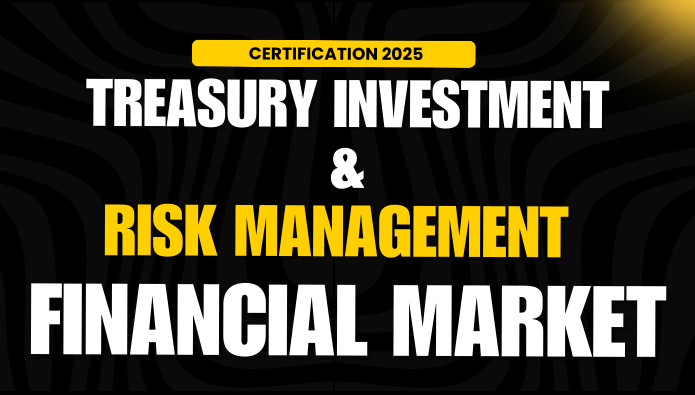Financial markets act as the backbone of economic growth, providing a platform for businesses to raise capital, individuals to invest their savings, and governments to finance their projects. Understanding these markets is critical for making informed financial decisions.
- Capital Market (Primary & Secondary Market)
- Money Market & Its Instruments
- Forex Market & Exchange Rate Mechanism
- Commodity & Derivative Markets
- Role of SEBI, RBI & Other Regulators
This session is perfect for bankers, finance professionals, and students who want to ace their TIRM exam and build a strong foundation in finance.
🔥 Watch the full session and take notes! Don’t forget to share your thoughts in the comments.
📽️ Watch the Full Video Here:
📌 Understanding Financial Markets
What is a Financial Market?
A financial market is a place where financial assets like stocks, bonds, derivatives, and currencies are bought and sold. These markets help in the efficient allocation of resources, capital raising, risk management, and investment opportunities.
Without financial markets, economic growth would be significantly hindered, as businesses would struggle to secure funding, and investors would find it difficult to identify viable investment opportunities.
📌 Classification of Financial Markets
- Capital Market: Deals with long-term investment instruments (stocks, bonds, debentures).
- Money Market: Focuses on short-term debt instruments (treasury bills, commercial papers).
- Foreign Exchange Market (Forex): Facilitates currency trading.
- Commodity Market: Deals with raw materials and agricultural products.
- Derivative Market: Involves trading financial instruments derived from other assets.
Each of these markets plays a vital role in maintaining the stability and growth of the economy.
📌 Capital Market: The Engine of Long-Term Finance
The capital market provides a platform for businesses to secure funds for long-term investments, infrastructure development, and expansion strategies.
🔹 Primary Market
Securities are issued for the first time (IPO & FPO).
Example: A new company issuing shares to the public for fundraising.
The primary market helps companies grow by providing them with direct capital infusion from investors.
🔹 Secondary Market
Previously issued securities are traded among investors.
Example: Buying or selling stocks on NSE & BSE.
The secondary market increases liquidity and allows investors to buy and sell securities effortlessly.
Regulated by SEBI (Securities Exchange Board of India).
📌 Money Market: The Hub for Short-Term Funds
If you need funds for a short duration (less than a year), the Money Market is the place. It is regulated by RBI and offers high liquidity.
Money market instruments like treasury bills, commercial papers, and certificates of deposit provide businesses and governments with short-term funding solutions while ensuring lower risks for investors.
📌 Foreign Exchange (Forex) Market: The Global Currency Hub
The Forex Market is where currencies are traded 24/7 worldwide. It helps businesses, travelers, and investors exchange currencies.
With globalization, forex trading has become crucial for international trade, allowing businesses to hedge against currency fluctuations and maintain financial stability.
📌 Derivative Market: Managing Financial Risk
Derivatives are financial contracts whose value is derived from underlying assets (stocks, bonds, commodities, etc.).
Derivatives help businesses hedge risks associated with price fluctuations and ensure financial predictability.
📌 Commodity Market: Trading Raw Materials
The Commodity Market deals with buying/selling of raw materials and agricultural products.
Commodity trading plays a significant role in stabilizing prices and protecting producers and consumers from extreme market volatility.
📌 Conclusion: Take Your Knowledge to the Next Level!
By now, you’ve gained deep insights into financial markets, their structure, and their impact on the economy.
🚀 Next Steps:
- Apply what you learned in your banking career or studies.
- Comment below with your doubts/questions!
- Subscribe to our channel & hit the notification bell to never miss an update.
- Share this session with your friends & colleagues.
📌 Download Your Free PDF Notes Here: [CLICK HERE]
Also Like:





